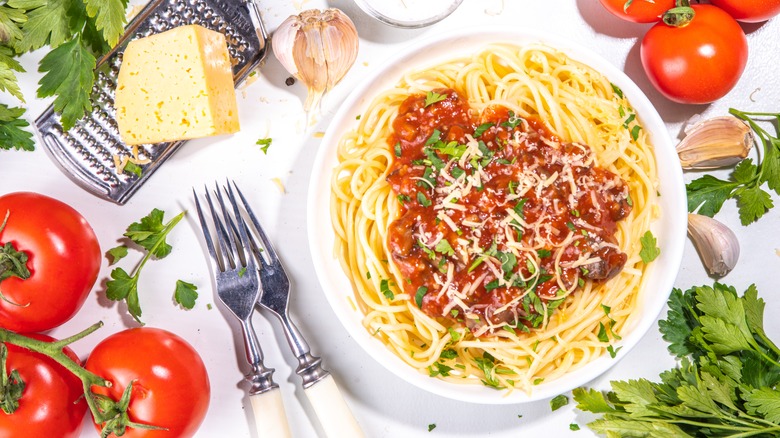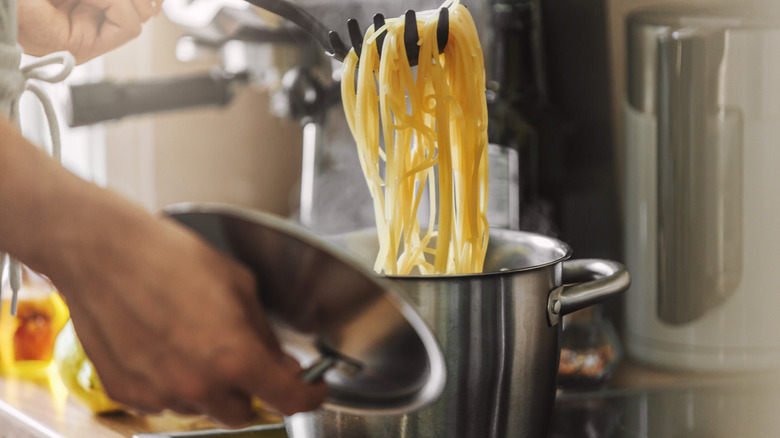Why The Size Of Your Pot Matters When Making Pasta
Pasta might have a reputation as an Italian classic, but it's a staple on dinner tables all around the world. According to the international noodle aficionados at Share the Pasta, Americans eat nearly 6 billion pounds of the stuff every year. In fact, it says, the average American puts away roughly 20 pounds of pasta each, annually. That's a lot of noodles.
Despite how frequently pasta finds its way onto your plate (and, statistically, it's probably pretty often), you might be surprised to learn that you could be doing it, well, better. There are a handful of common mistakes home cooks make with their noodles, from forgetting salt to adding oil to the water. However, one of the biggest pasta sins isn't picking the wrong type of pasta or the wrong wine to pair with it. Instead, the size of your pot might be to blame for a sub-par batch.
Among the most important steps to getting a perfectly chewy mouthful is making sure your pot is large enough: Here's why.
Grab a bigger pot for your next pasta dish
If you add raw pasta to a too-small pot, the uncooked pasta will lower the water temperature too much, too quickly, says Food & Wine, and the suddenly cooled water temperature increases the cook time necessary to achieve those perfectly al dente noodles. The lower pasta-to-water ratio also makes for a starchier, gummier bite, as that starch that's supposed to boil off of the noodles hangs around instead of dissolving, per Reluctant Gourmet. For an even cook, Smithsonian recommends using a pot between 6 to 8 quarts filled three quarters of the way full with 4 to 5 quarts of cold water per pound of pasta.
Like most things in life, adding the right amount of water to your pasta is a balancing act. While an undersized pot can be a linguine noodle's hamartia, make sure not to add too much water, either. As pasta cooks, its natural starches boil off into the water, creating that starchy solution that makes your pasta sauce stick to the noodles. The Daily Meal explains that boiling your pasta in too much water dilutes that starch into oblivion as your pasta continues to cook. Some folks skip the water altogether and boil their pasta right in the sauce.
But, whatever pot you select, make sure it's compatible with your stovetop; Per Food Network, many popular pasta pots available on the market don't work with induction cooktops.

